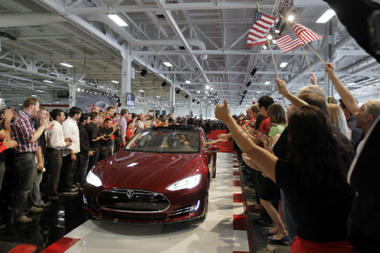The automotive industry is at the brink of a revolutionary transformation, one that promises to reshape our roads and redefine the way we commute. Electric vehicles (EVs) have emerged as the driving force behind this transformation, with their potential to reduce greenhouse gas emissions, enhance energy efficiency, and revolutionize transportation as we know it. In this article, we delve into the challenges and opportunities that accompany the rise of electric vehicles on the automotive industry, exploring how this game-changing technology is transforming the automotive industry.
1.Environmental Benefits and Sustainability:
The advent of electric vehicles presents a golden opportunity to combat climate change and reduce our dependence on fossil fuels. With zero tailpipe emissions, EVs significantly contribute to reducing air pollution and improving air quality in urban areas. Furthermore, as renewable energy sources continue to expand, EVs provide a sustainable means of transportation. As they can be powered by electricity generated from solar, wind, and hydro sources.
2. Technological Advancements and Innovation:
Electric vehicles are not only revolutionizing the way we power our vehicles but also driving significant advancements in technology and innovation. The development of advanced batteries, such as lithium-ion and solid-state batteries, has increased driving ranges and decreased charging times, addressing some of the initial limitations of EVs. Furthermore, cutting-edge technologies like regenerative braking and vehicle-to-grid (V2G) systems are being integrated into electric vehicles. Paving the way for smarter, more efficient transportation systems.
3. Infrastructural Challenges and the Charging Network:
One of the significant challenges faced by the electric vehicle industry is the establishment of a robust charging infrastructure. Building a comprehensive network of charging stations is crucial to alleviate range anxiety and ensure the widespread adoption of EVs. However, this challenge also presents a significant opportunity for governments, businesses, and entrepreneurs to invest in and develop a seamless charging infrastructure, creating a new industry and job opportunities in the process.
4. Shifting Market Dynamics and Consumer Preferences:
The rise of electric vehicles has triggered a shift in consumer preferences, with an increasing number of individuals considering EVs as their primary mode of transportation. This changing market dynamic presents automakers with an opportunity to adapt and innovate. Leading automotive manufacturers are investing heavily in research and development to design and produce compelling electric vehicles that offer both performance and sustainability, catering to the evolving demands of consumers.
5. Supply Chain and Resource Management:
The transition to electric vehicles necessitates a reevaluation of the automotive supply chain and resource management. EV manufacturers are actively working to secure a sustainable and responsible supply of raw materials, such as lithium, cobalt, and nickel, to ensure ethical production practices. Additionally, recycling and repurposing initiatives are being explored to manage end-of-life batteries, maximizing resource efficiency and minimizing environmental impact.
Conclusion:
The advent of electric vehicles represents a paradigm shift in the automotive industry, bringing forth a host of challenges and opportunities. From environmental sustainability and technological advancements to infrastructural development and shifting consumer preferences. The impact of electric vehicles is transforming the automotive landscape as we know it. As governments, businesses, and individuals embrace the transition to electric mobility. The automotive industry stands at the precipice of an exciting and sustainable future on the road.



